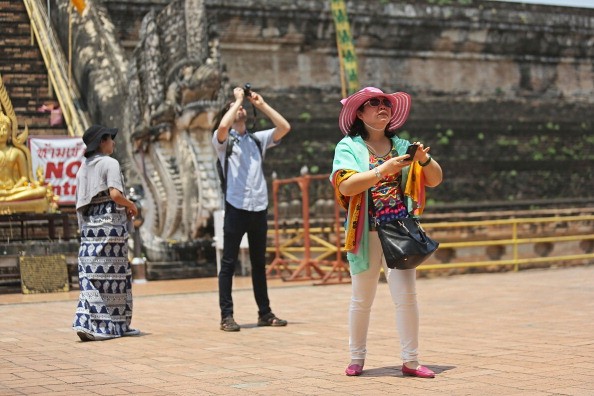Chinese tourists on the country's blacklist due to "uncivilized behavior" may soon face restrictions on airplane travel, joining travel groups or even taking overseas trips due to a revised draft of travel regulations posted on Monday.
China's current laws enable provincial and national tourism authorities to maintain records and share them with the public, travel agencies, and industry organizations as well government offices responsible for public security, customs, inspection and quarantine, border protection, transportation, and finance.
Under the revised draft, which is in its public comment phase, "punishments can be imposed by travel agencies or other related agencies or organizations based on the record," the China Daily newspaper reported on Wednesday.
According to the China National Tourism Administration (CNTA), examples of bad behavior that is subject for blacklisting include violating order on airplanes and other public transportation, damaging public facilities or historical relics, ignoring social customs at tourism destinations, and being involved in gambling and prostitution.
The proposed regulations are among a series of laws aimed to curb unruly behaviour of Chinese tourists, who have been involved in several international incidents in recent years. In April last year, the CNTA began keeping records of bad behaviour of tourists, resulting in 19 people being blacklisted as of 2016.
Chinese tourists have also been asked to dress modestly in public, avoid coughing in other people's faces, and avoid pressuring foreigners to stand for photos with them.
Liu Simin, vice-president of the tourism branch of the China Society for Futures Studies, said the blacklist may not have worked as effectively in practice as when it was initially envisioned.
"It is not that difficult to introduce restrictive measures on flights," Liu told China Daily. "However, if tourism authorities want to restrict blacklisted tourists from traveling overseas, they can only do this through travel agencies."
"If travelers plan their own trips and skip the agencies, they're out of reach," he added.
Aside from uncivilized behavior, the proposed regulation addresses other major concerns, including tourism security, unscrupulous practices by travel agencies, and false information presented on travel websites.
The revised draft also requires outbound tourists to carry information card containing personal information, disease history, and emergency contacts.
Zhang Hui, who works at an advertising agency in Shanghai, said the government should do more besides revising the regulation in order to fully protect tourists' safety and rights,
"I am very pleased to see the new draft support us in getting a refund if we are forced to purchase goods during a trip," she said. "However, it may be very difficult for tourists to prove that the tour guide pressured us to buy. We can't always take videos or make recordings."



























